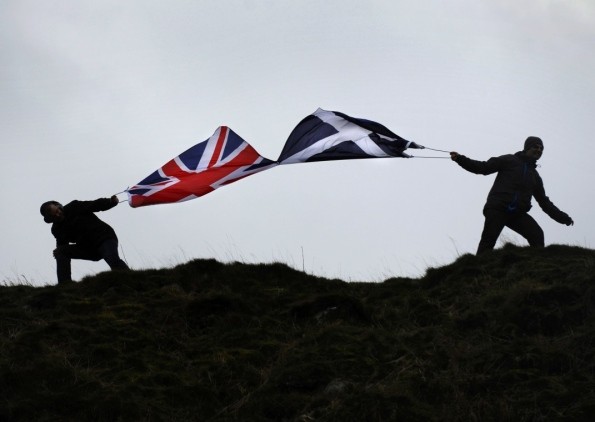
Are more autonomy and more devolution the way things should be in the 21st century?

Dear all,
Just a few days to go before we find out what the future shape of the United Kingdom is to be: this Thursday, on September 18, people in Scotland are going to vote in the referendum on Scottish independence, and we’ll know if they want a separate country or want to remain part of the United Kingdom.
The UK’s last such moment of separatism was in 1922 when Southern Ireland left the union. Is Scotland too now to go its own way?
As the voting date draws near, opinion polls show the vote to be extremely close. In the first week of September, a poll revealed that 47 per cent wanted an independent Scotland, 45 per cent were against and 8 per cent were undecided. No doubt as we get closer to the referendum date, these numbers will fluctuate and the suspense will build up feverishly…It’s an exciting moment in the history of the UK.
It now seems there is an actual possibility that we might have a UK minus Scotland.
The cause for Scottish independence has perhaps received most international publicity via Hollywood (Sean Connery’s statements and financial support for nationalism, the film Braveheart), but the referendum has been made possible via the politics of Holyrood (the seat of the Scottish parliament). To actually have a referendum was one of the election pledges made by the Scottish National Party leader (now First Minister of Scotland) Alex Salmond in 2011.
Scottish nationalists have long grumbled about not being independent and not having control over their own resources (North Sea oil in particular), but the referendum will be now able to measure the actual weight and intensity of this sentiment. Obviously this is something of a make-or-break moment for the cause of Scottish nationalism.
Scotland has had a long history of fighting against the English and, over the centuries, it was usually quite happy to be allied with anybody who was fighting against the English (mostly the French and the Spanish). But since 1707, Scotland been part of a United Kingdom and the possibility of change now seems terrifying to many.
All the main political parties in the country are pro-union and have mostly been playing on voters’ insecurities by stressing how messy and difficult the ensuing financial changes in Independence would be. A few high profile Scottish people have come out publicly in favour of staying in the union and they have been much derided by the Nationalists. Pro-union voices have been heard from the likes of author JK Rowling. The Let’s Stay Together campaign has attracted over 16,000 signatures and includes a glittering list of celebrities, but has been much derided by Nationalists who have criticised the celebs quite viciously.
The tone of the debate has often become quite acrimonious.
Scotland as an independent country? Does that bode ill or well for immigrant communities? Is there a danger that as the idea of Scottishness and Scottish nationhood is hardened and reinforced to build an independent Scotland, immigrant communities will be perceived as ‘outsiders’ or not quite Scottish enough? Or will this be a wonderful example of civilised secession? Are more autonomy and more devolution the way things should be in the 21st century?
It seems like we are on the brink of a new era; because even if the No vote wins, it will still be a significant moment in the history of the whole debate…
All I can say is that I had better stop taking the place for granted: I have never visited Scotland despite being in the UK for well over a decade…I had better get around to it very soon!
Best wishes